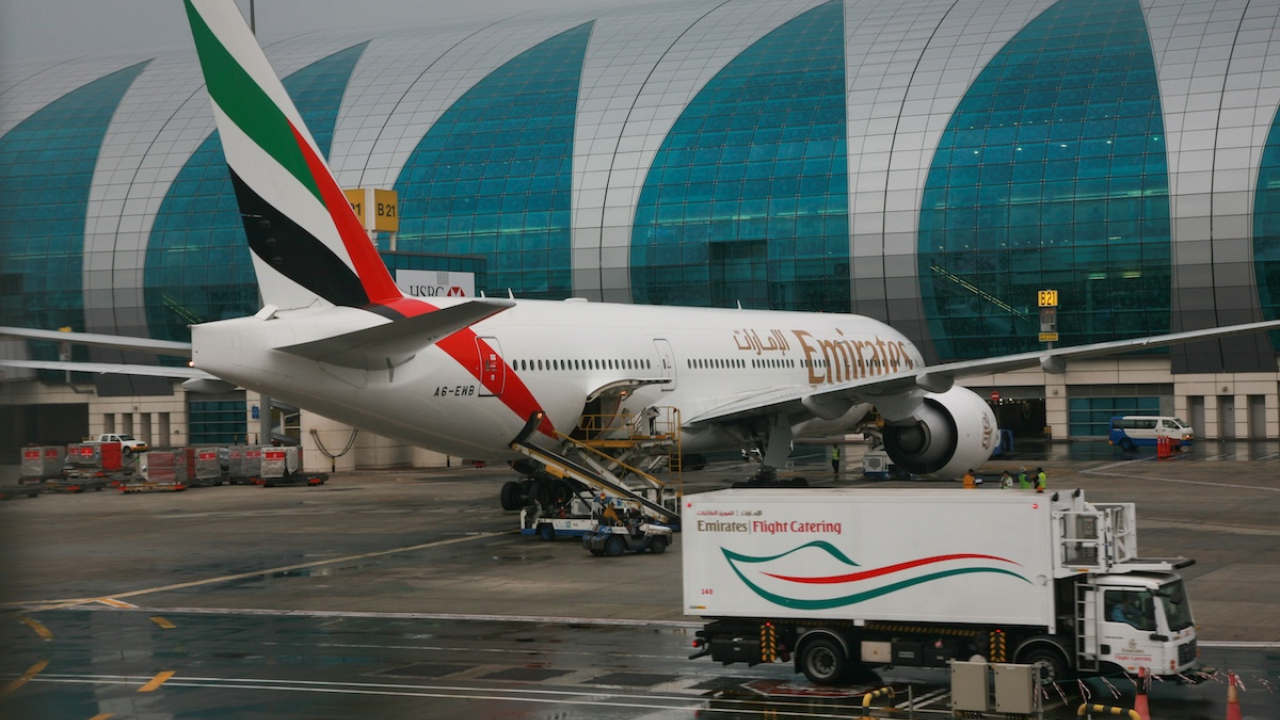MEA battles through yet another regional crisis
Mohamad El-Hout, his management team and his hardy carrier are in crisis mode, again, at Lebanon’s Middle East Airlines (MEA).

Mohamad El-Hout: “The war, the risk and the crisis management are major issues that we are living with. But we are a resilient company and a resilient country.” Image: Mark Pilling
MEA is hardly a stranger to managing an airline in troubled times and is thrust into them once more as the Israel-Gaza war, which erupted in October 2023, brings safety concerns and affects traffic.
From a business point of view the timing is unfortunate, with MEA making a profitable recovery out of the pandemic. However, the Beirut-based carrier is familiar with uncertainty as Lebanon has land borders with Israel and Syria and the geo-political issues that swirl around these countries.
Amid this turmoil, MEA is carrying out a fleet modernisation, and like many other carriers is facing delivery delays from its aircraft supplier Airbus. But with a quarter of a century at the helm of MEA, making him one of the longest-serving airline heads globally, let alone in the Middle East, Mohamad El-Hout is unfazed.
“We are used to crisis,” he stated. “Delayed delivery [of aircraft] is the easiest problem that we are facing. The war, the risk and the crisis management are major issues that we are living with. But we are a resilient company and a resilient country.
“We have passed through much more difficult times, and we believe we have the financial ability to go through this challenge,” he said, speaking to Arabian Aerospace on the sidelines of the IATA AGM in Dubai in early June.
“The most important thing is that this war has an end, and we can see a ceasefire in Gaza in the near future.”
Despite the challenges faced over the years, considering its location MEA has performed strongly for years under El-Hout’s leadership.
“Last year was a good one for us compared to a year before,” he explained. “From 2002, until now, we have been making profit every year, except for 2020. But since the beginning of the Gaza war, we have been affected a lot.”
Not only have passenger volumes fallen, but it has faced the problem of war insurance, meaning some aircraft would not be covered and at risk if operated in Lebanon.
At the beginning of the war, MEA was forced “to reschedule our network and park more than half of our planes outside Lebanon,” said El-Hout. While the situation has eased, the airline continues to park six out of its 23 aircraft outside of the country.
The carrier is now flying about 80 per cent of its planned schedule, with many night stops factored into an adjusted timetable to enable aircraft to park overnight at airports such as Istanbul, Cyprus and in Georgia.
Whether MEA can sustain its profitability this year “depends on the summer,” said El-Hout. The carrier has not released audited results yet for 2023 but was profitably at the operating and net levels.
“If the war spreads, no. If the war is contained, yes,” he said of the profit outlook. The hope is that a strong summer will make up for the lost traffic earlier in the year.
Despite operating in a war zone, and taking all the necessary precautions, El-Hout said that government and intelligence sources indicate that neither Beirut airport nor aircraft there will be targets. “We believe that the war will be continue to be targeted and contained,” he noted.
In terms of aircraft deliveries, MEA continues to modernise its fleet, taking delivery of its latest Airbus A321neo in March. It is parked at Airbus in Hamburg until MEA feels the time is right to induct it into the fleet.
MEA is the launch customer for the long-range XLR version of the A321neo and will receive its first one of five in 2026, later than the original 2023-24 timeline, said El-Hout.
The delivery of four new A330neos will take place in 2026-2028, he said.
MEA will keep its existing fleet to “make up for the delay in the delivery of the Airbus aircraft”.
Stay up to date
Subscribe to the free Times Aerospace newsletter and receive the latest content every week. We'll never share your email address.


